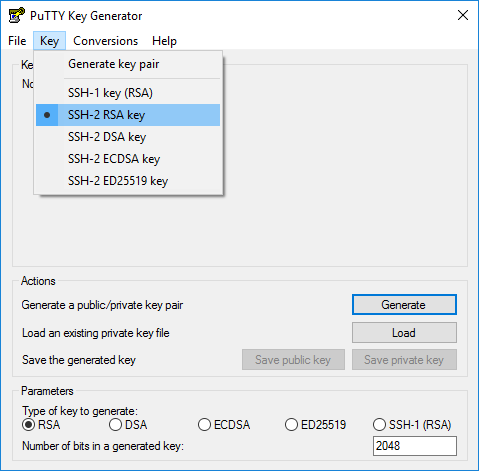Ssh Public Key Generation Mac
This guide goes through setting up SSH keys on macOS Mojave 10.14 back to Mac OSX 10.11 and also a secure password-less SSH connection between a local macOS workstation and a remote server also running a Linux variant operating system.
- Using SSH public-key authentication to connect to a remote system is a robust, more secure alternative to logging in with an account password or passphrase. SSH public-key authentication relies on asymmetric cryptographic algorithms that generate a pair of separate keys (a key pair), one 'private' and the other 'public'.
- The.pub file is your public key, and the other file is the corresponding private key. If you don’t have these files (or you don’t even have a.ssh directory), you can create them by running a program called ssh-keygen, which is provided with the SSH package on Linux/macOS systems and comes with Git for Windows.
- /.ssh - your hidden directory contains all your ssh certificates idrsa.pub OR iddsa.pub are RSA public keys, (the private key located on the client machine). The primary key for example can be used to enable cloning project from remote repository securely to your client end point.
Adding your SSH public key to GitLab. Create and add your SSH key pair. It is best practice to use Git over SSH instead of Git over HTTP. In order to use SSH, you will need to: Create an SSH key pair; Add your SSH public key to GitLab. Creating your SSH key pair. Go to your command line. Follow the instructions to generate your SSH key pair.
The process requires generating a public and private key on the local computer and then adding the public key to the remote servers authorised list. What is great about this is that it allows a password prompt free session, handy for a lot of uses.
First thing that you need to do on your macOS machine is to create a directory that will store your SSH keys. Then you will generate a public and private key for your account, launch the Terminal and punch in some commands:
Create a .ssh Directory
Change to the home directory
Create a SSH directory name .ssh and move into it
Make sure that the file permissions are set to read/write/execute only for the user Serial key generator for macromedia flash 8.
Create your private and public key, the blank quotes at the end of the command gives the private key no password, so allowing for passwordless logins!
Change into the .ssh directory and list the contents of that .ssh directory
Thats your SSH keys created, the private key is the id_rsa and the public one is the id_rsa.pub, don’t give out the private one always keep that one only on your local machine.

Sharing the Public Key
Create an authorized_keys in the .ssh directory of the remote computer that you want to connect to.
You can create automatic logins by adding the contents of your public key to the authorized_keys file on the remote device.
To see and copy your public key use the cat command and copy the contents:
On the remote computer if needed, change the permssions on the authorized_keys file to write to add the public key, on a new line paste in your public key, and change permissions back to read only after for security.
Allow write on authorised_keys
Paste the entire id_rsa.pub content with vi or nano into the authorized_keys file, if using nano use the -w flag to not use incorrect line breaks.
If the remote host does not have an “authorized_keys” file simply create one and after the public key is pasted in don’t forget to takeaway write permissions.
Ssh Public Key Windows
Going Both Ways
So now when you connect via SSH no password is prompted as the remote computer has your public key which is only decrypted by your private key held in your local .ssh/ directory. If you want the communications to be bilateral then repeat the process in the opposite order between the two.
Now the two computers can securely connect with no password prompting, making it ideal to script between the two for file copies or back ups.
Doing it Quicker
Now instead of typing in
Ssh Key Generation Mac Os X
Make an alias in your bash shell you could alias it to
/putty-generate-ssh-key-pair.html. Reload the the shell
Then all you have to type in is the alias